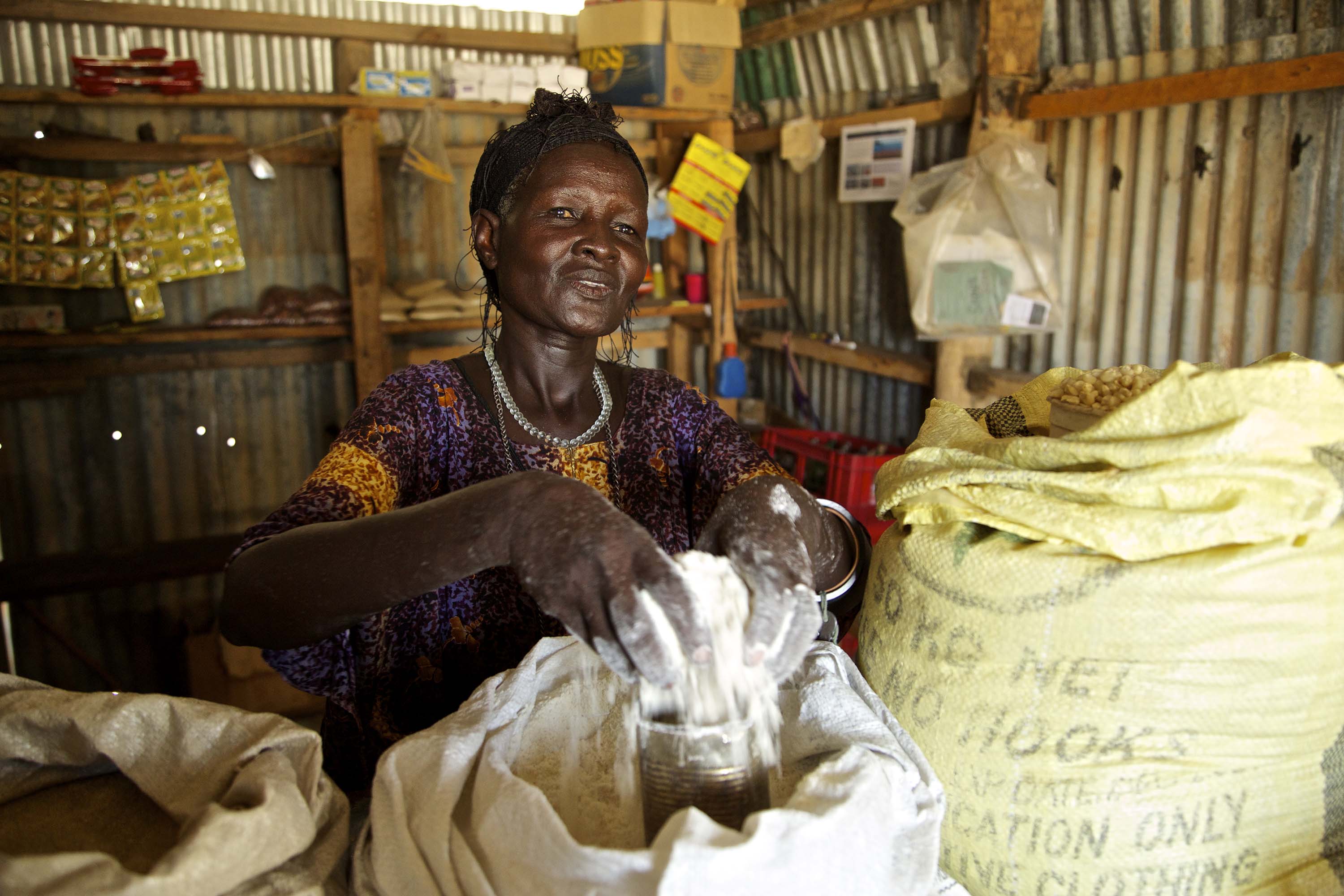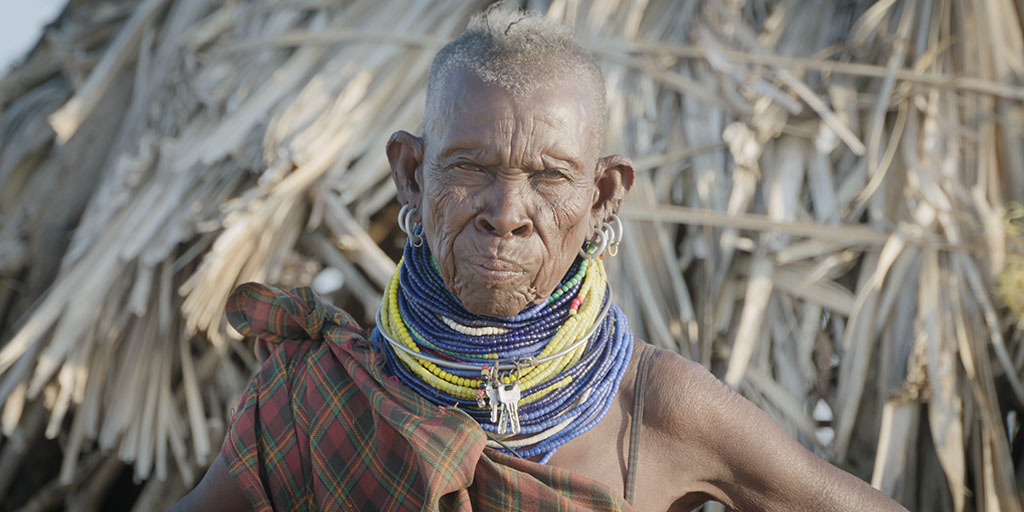 Akuam at her shop in Kataboi, Turkana North
Akuam at her shop in Kataboi, Turkana North
Akuam Ideya Monti, a widow, is nostalgic as she reminisces over her life’s changing fortunes that have swung like a pendulum, oscillating from opulence to desperately in need, then back to self-reliance. But this did not just happen. With stoic resilience, she worked her way out of poverty. Hers is a true story of turning life’s lemons into lemonade.
Born in 1966, Akuam who was born in Turkana County’s Lokitaung area, married her sweetheart at a church wedding. They were blessed with seven children that she comfortably took care off, also playing guardian to her sister-in-law’s two children.
“ While I was a stay at home mother, my husband who worked as a loader for the World Food Program provided for our relatively large family. He was very supportive,” she says.
She recalls the good old days when her family lived happily within Lodwar town, the capital of Turkana County.
As fate would have it, when she had turned 32 years, the tranquility they enjoyed drastically changed for the worst when her husband began ailing from tuberculosis, thrusting her into the new unenviable dual role of father and mother.
“ When my husband’s health deteriorated, I re-located to his home in Kakuma with the hope that my in-laws would stand with us,” she says.
As fate would have it, he eventually died in 1998. Without the reliable bread winner, she was thrust into the new status of being desperately in need as she had to solely fend for their children.
However she says soon after the burial, while still mourning, most of her nomadic pastoralist in-laws left the homestead in search of pasture.
“ I made the quick decision to re-locate back to Kataboi sub-location, the original home for my biological parents, to begin a new life,” she says. Fortunately she was accepted back and settled in. She adds that she then immediately ventured into small-scale dried fish business that she sold within Kakuma.
That decision was godsend as she was registered into the Hunger Safety Net Program Phase 2 that rolled out its cash transfer program.
“ I bought iron sheets, opened a small shop and an adjacent butchery,” her face lights up as she recalls.
“ I was a beneficiary of HSNP’s arrears disbursement of six instalments, that I used to construct permanent structures that house my shop, butchery and two tenants,” she proudly says.
She is happy that she earns Kshs. 2,000 every month as rent from the tenants, exclusive of her income from the businesses.
“ When I stock my shop with goods worth thirty thousand shillings, I make up to five thousand profit within two months,” she says. She is quick to add that this increases when cash transfers are disbursed, as there is an escalation of customers.
“ HSNP’s cash transfer program is my father, my mother and my husband,” she says.
Through the program, she has been able to educate her children and provide for their basic needs.
“ My daughter who recently passed her KCSE examinations will soon be joining a medical training college, “ she proudly tells shares.
She says she decided not to re-marry as a solution to her widowhood, as men can be unpredictable. She is conscious that children of women who opt for this lose respect for the mother.
Asked how she concurrently manages to run a shop and the butchery, she heartily laughs and tells me she has a reliable daughter who supports her. She says we did not meet her at the shop as she was attending a local community meeting (baraza).
“ I am very grateful for HSNP’s cash transfer program that considers vulnerable women. If men were empowered with this cash, I predict many of them would increase wives or turn to alcohol instead of helping the family, she concludes.

